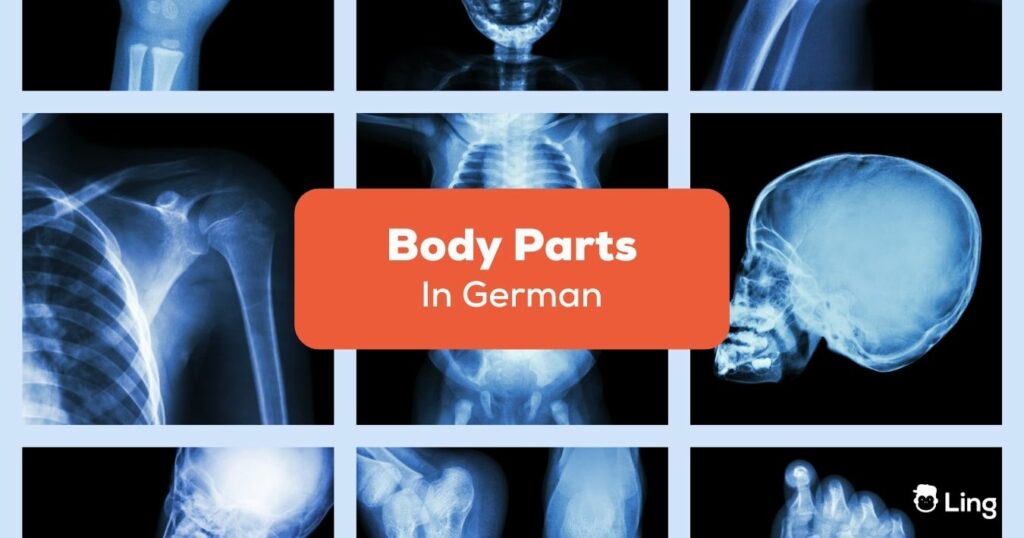Learning a new language can be an exciting journey. When we delve into German, one of the first things we might wish to master is the vocabulary for die Körperteile or body parts in German. Now, you might be thinking, “Body parts? Really? Why should I care?” Oh, trust me, you should. Whether you’re explaining an ailment to a doctor, complimenting someone, or discussing specific exercises to target certain body parts, German words related to the body will certainly come in handy. If you’re ready to learn that and more, keep reading below!
So, you’re jet-setting off to some charming German town, excited to explore those quaint cobblestone streets, aren’t you? Sounds like a dream, right? But let’s get real for a second. Life has a funny way of throwing curveballs at us, especially when we’re on the road. One minute, you’re enjoying a pretzel, the next, you’ve got a sprained Fuß (foot). Yikes!
Now, I’m not trying to scare you, but here’s the truth: when you’re in a foreign land, speaking the local lingo can be more than just a cool party trick. It can be a genuine lifesaver. I’m not telling you to transform into a German language maestro overnight, but picking up some basics can go a long way.
For instance, knowing your German body parts. Trust me, it’s more useful than you think. Imagine being able to explain your symptoms clearly to a doctor or asking for specific medications at the local Apotheke (pharmacy). Suddenly, knowing the word for Bauch (stomach) or Augen (eyes) seems pretty important, right?
So, let’s make a pact to learn these basics. It’s going to be fun, and who knows, it might just save your day or even your life! Ready to dive in? Let’s go!
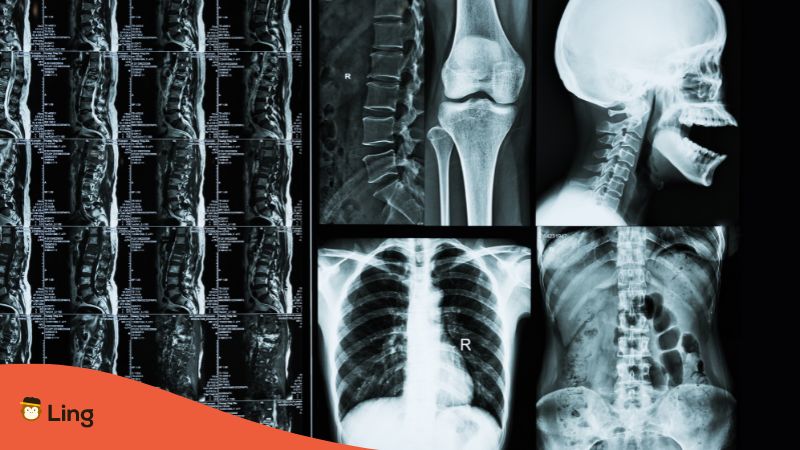
Main Body Parts In German
Alright, it’s time to roll up our sleeves (or should I say “Ärmel hochkrempeln”?) and dive right into the core of our topic – the main body parts in German. From your Kopf (head) to your Füße (feet), we’re going to cover it all. And don’t worry, we’re not going to simply throw a bunch of German words at you. Nope! We’re going to organize it all neatly in a table, with English equivalents and even the plural forms. Now, isn’t that handy?
| English | German Singular | German Plural |
| Arm | der Arm | die Arme |
| Back | der Rücken | die Rücken |
| Breast | die Brust | die Brüste |
| Butt | der Hintern/der Po | die Hintern/die Pos |
| Chest | die Brust | die Brüste |
| Ear | das Ohr | die Ohren |
| Eye | das Auge | die Augen |
| Foot | der Fuß | die Füße |
| Groin | die Leistenbeuge | die Leistenbeugen |
| Hand | die Hand | die Hände |
| Head | der Kopf | die Köpfe |
| Hip | die Hüfte | die Hüften |
| Knee | das Knie | die Knie |
| Leg | das Bein | die Beine |
| Mouth | der Mund | die Münder |
| Neck | der Nacken | die Nacken |
| Nose | die Nase | die Nasen |
| Shoulder | die Schulter | die Schultern |
There are many ways to use these words in different sentences. To help you out in this, we rounded up three basic sentence structures that you can follow:
My + Body Part + hurts = Mein/Meine + Body Part In German + tut weh
- My head hurts = Mein Kopf tut weh.
- My hand hurts = Meine Hand tut weh.
- My foot hurts = Mein Fuß tut weh.
This is my + Body Part = Das ist mein/meine + Body Part In German
- This is my leg = Das ist mein Bein.
- This is my nose = Das ist meine Nase.
- This is my right hand = Das ist meine rechte Hand.
My + Body Part + is stiff = Mein + Body Part In German + ist steif.
- My neck is stiff = Mein Nacken ist steif.
- My shoulder is stiff = Meine Schulter ist steif.
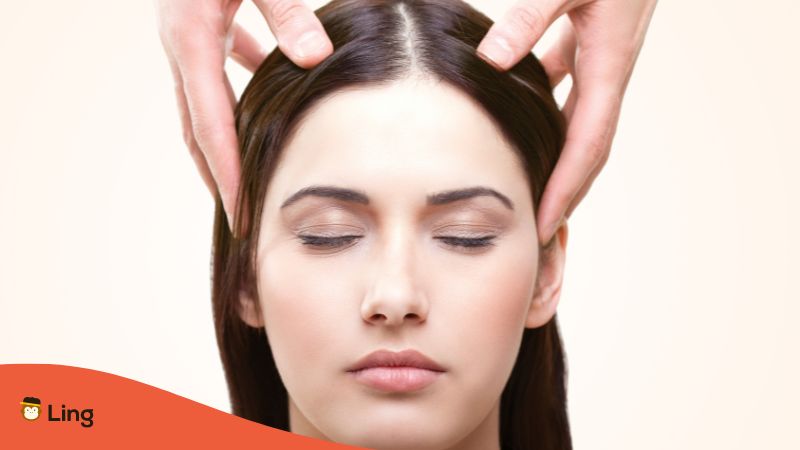
Parts Of The Head In German
Alright, folks, we’re moving on up – all the way up to the head, to be precise. This is where a lot of the action happens, isn’t it? From expressing emotions to processing our favorite flavors, our head-related body parts are pretty busy. So, it only makes sense to get well-acquainted with these terms in German.
| English | German Singular | German Plural |
| Beard | der Bart | die Bärte |
| Chin | das Kinn | die Kinne |
| Ear | das Ohr | die Ohren |
| Eye | das Auge | die Augen |
| Face | das Gesicht | die Gesichter |
| Hair | das Haar | die Haare |
| Lips | die Lippe | die Lippen |
| Mouth | der Mund | die Münder |
| Neck | der Hals | die Hälse |
| Nose | die Nase | die Nasen |
| Teeth | der Zahn | die Zähne |
| Tongue | die Zunge | die Zungen |
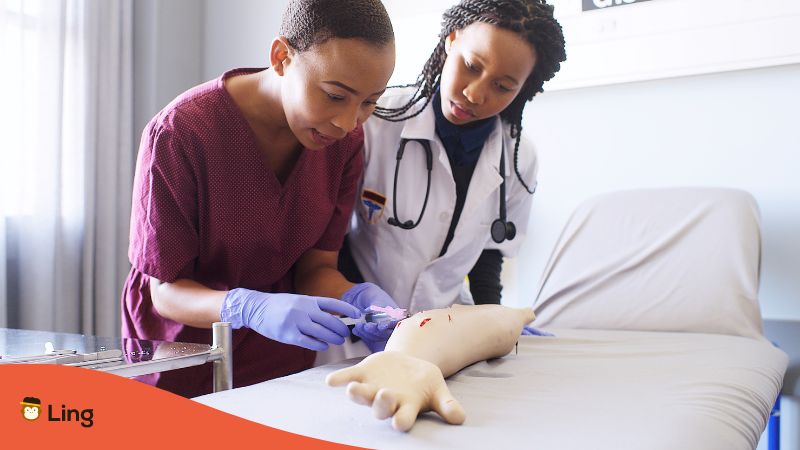
Torso And Limbs Related Words In German
We’ve already tackled our head, so now it’s time to head south and conquer the torso! This region hosts some of our most vital organs, and it’s important that we know how to refer to them when speaking German. So whether you’re talking about your Herz (heart) during a sentimental moment or your Bauch (stomach) after a hearty German meal, knowing these torso-related terms will definitely come in handy.
| English | German Singular | German Plural |
| Chest | die Brust | die Brüste |
| Heart | das Herz | die Herzen |
| Lungs | die Lunge | die Lungen |
| Stomach | der Magen | die Mägen |
| Abdomen | das Abdomen | die Abdomina |
| Navel | der Bauchnabel | die Bauchnäbel |
| Waist | die Taille | die Taillen |
| Back | der Rücken | die Rücken |
| Shoulder | die Schulter | die Schultern |
| Arm | der Arm | die Arme |
| Elbow | der Ellbogen | die Ellbogen |
| Hand | die Hand | die Hände |
| Finger | der Finger | die Finger |
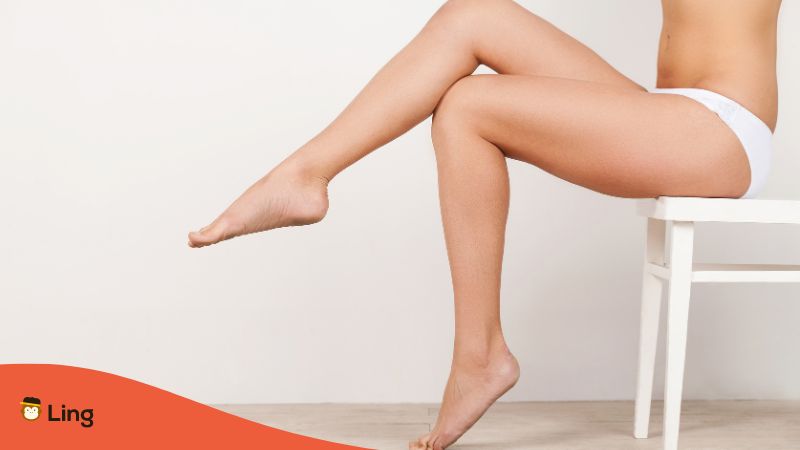
Lower Body Parts In German
After covering the top and middle, it’s only fair that we now turn our attention to the lower body. This is the part that carries us around all day, after all! Whether you’re talking about your Füße (feet) after a long day of sightseeing and visiting all the art museums in Munich or your Beine (legs) during a workout session, these German terms will certainly come in handy.
| English | German Singular | German Plural |
| Hip | die Hüfte | die Hüften |
| Leg | das Bein | die Beine |
| Knee | das Knie | die Knie |
| Ankle | der Knöchel | die Knöchel |
| Foot | der Fuß | die Füße |
| Toe | der Zeh | die Zehen |
| Heel | die Ferse | die Fersen |
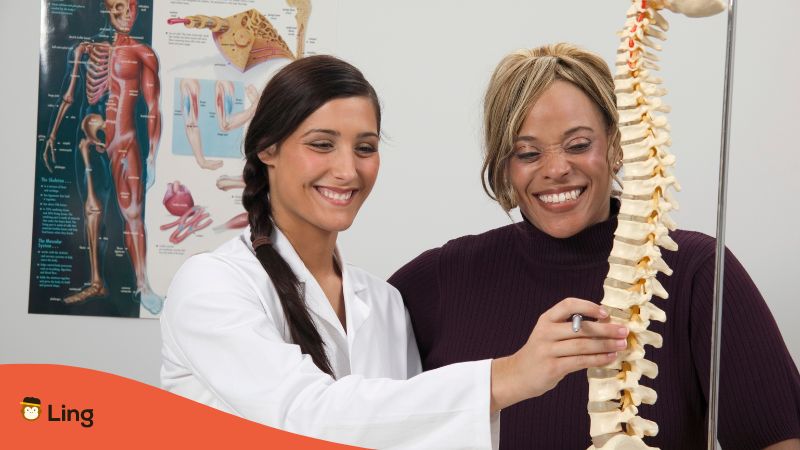
Advanced Body Parts In German
Think you’re ready to expand your vocab further? Let’s shift gears a bit and delve into the more complex territory by mastering these advanced German words for the inner body parts.
| English | German Singular | German Plural |
| Bone | der Knochen | die Knochen |
| Brain | das Gehirn | die Gehirne |
| Heart | das Herz | die Herzen |
| Liver | die Leber | die Lebern |
| Lung | die Lunge | die Lungen |
| Muscle | der Muskel | die Muskeln |
| Nerve | der Nerv | die Nerven |
| Skull | der Schädel | die Schädel |
| Spine | die Wirbelsäule | die Wirbelsäulen |
| Tendon | die Sehne | die Sehnen |
Want To Learn The German Language?
Feeling ready to take your German to new heights? If so, we’ve got something that’s just right for you: Meet Ling, your next-gen language tutor!
Picture this: you’re done with those bulky textbooks and monotonous flashcards. Instead, you’ve got a sleek, fun, and interactive app right in your pocket, ready to spice up your language-learning journey. Sounds cool, right?
Here’s the kicker: Ling is not just any language-learning app. It’s been crafted by real-life language aficionados – native speakers who truly get what you need as a student. Say goodbye to yawn-inducing lessons and hello to a treasure trove of practical knowledge that you can actually use in your daily chats, auf Deutsch!
But hey, don’t just take our word for it. Dive in and experience the Ling difference for yourself. Head over to the App Store or Google Play, download Ling, and join the ranks of happy language learners today. Trust us, your future German-speaking self will thank you!
